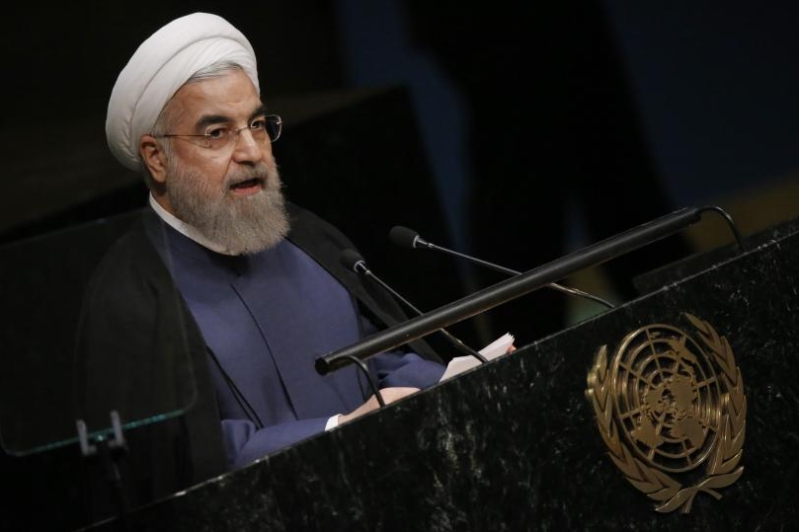
Iranian President Hassan Rouhani urged Muslim country residents to assume the responsibility of improving Islam's public image in remarks he made at a Saturday conference in Tehran, reports International Business Times. Due to the number of extremist attacks during 2015, people increasingly associate the religion of Islam with acts of violence. He said Muslims "must remove Islam's negative image from today's cyber and real space," Agence France-Presse reported.
"I invite all Islamic countries in this region and beyond - even those who, until today, have bombed and launched missiles on their neighbors - for all of us to stop this and choose the right path," he said.
"Did we ever think that, instead of enemies, an albeit small group from within the Islamic world using the language of Islam, would present it as the religion of killing, violence, whips, extortion and injustice?" Rouhani said.
"It is our greatest duty today to correct the image of Islam in world public opinion," Rouhani said in the speech broadcast by state television.
Rouhani criticized Muslim countries for "being silent in the face of all the killing and bloodshed" in Syria, Iraq and Yemen, reports Hindustan Times.
Several Islamic militant groups launched more extremist attacks throughout 2015, including Boko Haram in Nigeria and the Islamic State group in Iraq and Syria (ISIS), cites International Business Times. In November and December alone, terrorists killed nearly 200 people in the name of Islam with attacks on Paris, Beirut and San Bernardino, Calif.
Rouhani encouraged all Muslim countries to show a different side of Islam, despite differences in ideology, historic ties or conflicts.
ISIS, whose representatives have claimed responsibility for some of the most deadly terror attacks of the year, rose from the chaos of an ongoing civil war in Syria, according to an International Business Times article. The conflict in Syria began after 2011 protests against President Bashar Assad's government turned violent. Pro- and anti-government factions have since splintered, becoming increasingly sectarian. ISIS has been battling Assad's forces while attempting to impose Islamic law across vast swaths of Iraq and Syria.
Iran has supported Assad in the civil conflict, coming under fire from Western authorities who cite Assad's brutal regime as a contributing factor to the rise of ISIS, reports International Business Times.
On Sept. 28, 2015, in New York, Rouhani told United Nations members: "We will not forget the past, but we do not wish to live in the past. We will not forget war and sanctions, but we look to peace and development."







